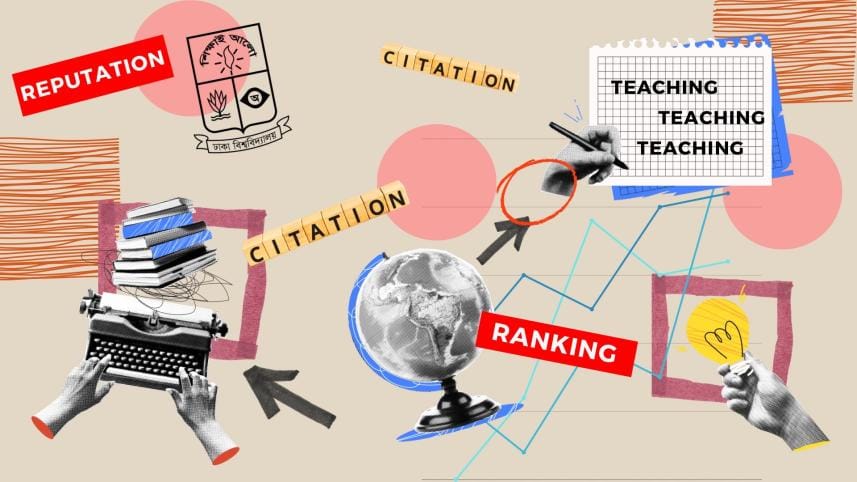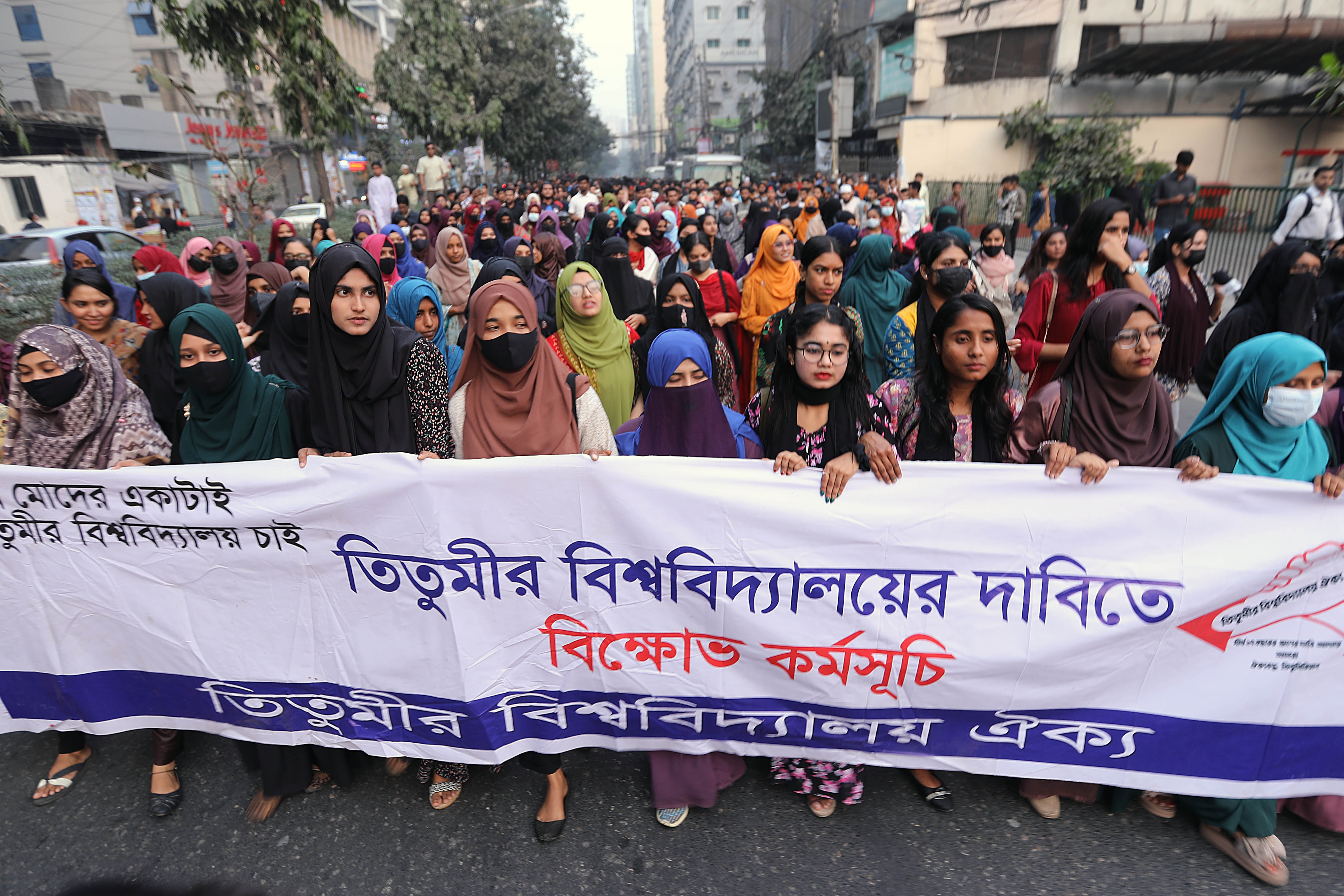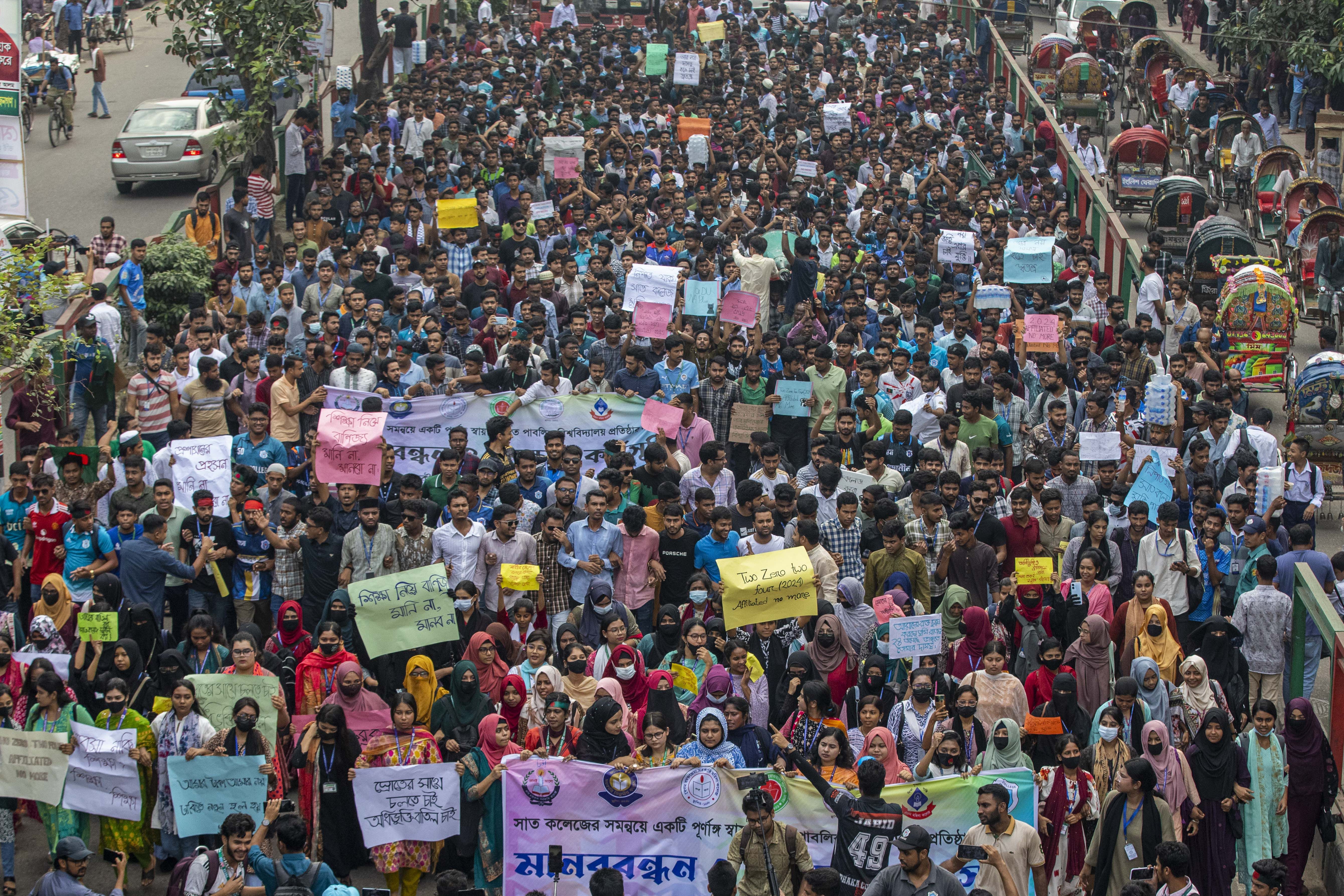Understanding the university ranking mismatch

As a Dhaka University faculty member, it was quite frustrating for me to see our institution outside the 1,000 universities ranked for sustainable impact measured by Times Higher Education (THE). Then again, it was a proud moment to see 20 universities, including a private one, from Bangladesh making it to the top 200 among the 1,500 ranked universities. The following day, another university ranking agency, QS, published its vaunted World University Ranking (WUR). DU retained its top position, slotting among the top 600, followed by BUET in the top 800 and North South University in the top 1000. There are 12 more Bangladeshi universities in this year's QS ranking. The publication of these two rankings has created public confusion that merits both explanation and reflection.
While the THE Impact Ranking (THE-IR) assesses universities against the Sustainable Development Goals (SDGs), QSWUR evaluates academic reputation, employer reputation, faculty-student ratio, citations per faculty, international faculty and student presence, and sustainability efforts. The THE-IR provides a clear set of metrics that measure how universities, as complementary forces supporting their nations' commitment to the SDG Agenda 2030, contribute to social, economic, and environmental sustainability through their research, stewardship, outreach, and teaching. To qualify for the THE-IR, universities provide evidence of their policies, actions, and research that are aligned with at least four of the 17 SDGs.
For instance, the best performer in Bangladesh, Daffodil International University, provided evidence in SDGs 4 (Quality Education), 8 (Decent Work and Economic Growth), 10 (Reduced Inequalities), and 17 (Partnerships for the Goals) to claim their spot among the top 200. This is a remarkable achievement considering the fact that the next best performers are in the 601-800 band: AIUB, BRAC University, Green University, and United International University. Two technical universities, Gazipur Agricultural University and the International University of Business, Agriculture and Technology (IUBAT), are in the 801-1000 band of ranked institutions. DU finds itself outside the 1000 alongside Bangladesh Agricultural University, IUB, Jahangirnagar University, Jashore University of Science and Technology, Rajshahi University, ULAB, and World University of Bangladesh.
Personally, I was taken aback by this year's results as they did not accurately represent the scope, expertise, and legacy of DU, the nation's oldest and most esteemed university. The shock turned into curiosity when the QSWUR came out a day later. DU is ranked No 1 in sustainability—the criterion measured by the THE-IR. How can one ranking agency credit the university highly for its sustainability-related initiatives, policies, and leadership while another holds a different view? The answer is simple: when participating in this year's impact ranking, DU failed to tell its impact story. The information for this year's ranking is based on data from 2023, which was submitted in October 2024. As a member of the ranking committee, I know how little scope we had in aligning our performance in the prescribed format of THE. The Impact Ranking requires evidence and submitted targeted data to demonstrate inclusion policies for disadvantaged students, community outreach programmes, environmental initiatives on campus, and research directly tied to sustainable development. Our website and documentation did not necessarily reflect those alignments. Other participating universities have been more successful in demonstrating their alignment of institutional strategies with specific SDGs.
As a public university, Dhaka University leads Bangladesh's transformation in line with Agenda 2030. Our colleagues are involved with national policy framing, research, and thought leadership. It produces graduates with SDG-aligned skills to address the country's biggest development challenges. Its alumni body, including Nobel Laureate Prof Muhammad Yunus, engages in reducing inequality and supporting marginalised communities. Yet, we have failed to tell our impact story in a format prescribed by THE-IR.
To put matters into perspective, the top UK university in the Impact Ranking is the University of Manchester, and the best US university is Arizona State University, occupying the second and sixth positions, respectively. The exclusion of many iconic universities suggests that this ranking encourages institutions to highlight their strengths in alternative categories.
According to the QS institutional health card, DU is No 1 among the 15 institutions evaluated in Bangladesh in four out of ten categories: academic reputation, employment outcome, international research work, and sustainability. DU has seen a decline in its employer reputation compared to last year and still maintains the No 2 slot in Bangladesh. The areas in which DU needs to work are international faculty, faculty-student ratio, international students, citations per faculty, and international student diversity. And these weak areas are common to almost all public universities.
Take internationalisation, for example. Dhaka University does not have a provision to hire international faculty members, which many private universities can. It has also failed to attract international students because of its lack of a credit transfer system, complex bureaucratic admission processes involving education, home and foreign ministries, the medium of instruction, safety concerns, and poor accommodation facilities. Additionally, a significant number of teachers do not publish in international journals or in English. Unlike private universities, which focus on STEM programmes, our degrees are comprehensively spread out, which have affected our citations per faculty. Despite having 115,900 gross citations from 5,720 papers published by DU teachers and indexed in the Elsevier database, we rank ninth among Bangladeshi universities in terms of QS citations per faculty. Many of the newer universities lack a large faculty body like ours. Then again, many of our colleagues don't publish papers beyond the minimum promotion requirement.
The discrepancy serves as a warning to all of us. We need to change our mindset and up our game. Our university administration must set their priorities right. There should be some strategic directives from our leaders. What actions can the government take to attract foreign students and establish Bangladesh as a destination country? The policy so far has been to collaborate with foreign agencies to treat Bangladesh as a source country for overseas destinations. Private universities, striving to meet international ranking metrics, have been successful in retaining many students and saving foreign currency. They should receive incentives, not punishment in the form of VAT, for instance, treating education as a consumable commodity. Allowing BRAC University to become the first PhD-giving entity in collaboration with SOAS of the University of London is the right move. It indicates that private universities are becoming stronger in their infrastructure and logistics.
Similarly, the government needs to incentivise public university teachers so that they can compete at an international level. They work with a paltry pay dealing with a large class size. The incentives may include financial rewards, research funding, publication processing fees, and annual recognition of high performers. On the other hand, at an institutional level, there should be more emphasis on transparency and accountability.
In absence of visible information and transparent policies, DU was unable to claim many of its impact ranking-related activities. But its QSWUR success will motivate it to compete in other categories. It is important to note that this is a race in which all Bangladeshi universities must be united. We are not competitors but brand ambassadors for the country's higher education sector.
Dr Shamsad Mortuza is professor of English at Dhaka University.
Views expressed in this article are the author's own.
Follow The Daily Star Opinion on Facebook for the latest opinions, commentaries and analyses by experts and professionals. To contribute your article or letter to The Daily Star Opinion, see our guidelines for submission.




 For all latest news, follow The Daily Star's Google News channel.
For all latest news, follow The Daily Star's Google News channel. 



Comments